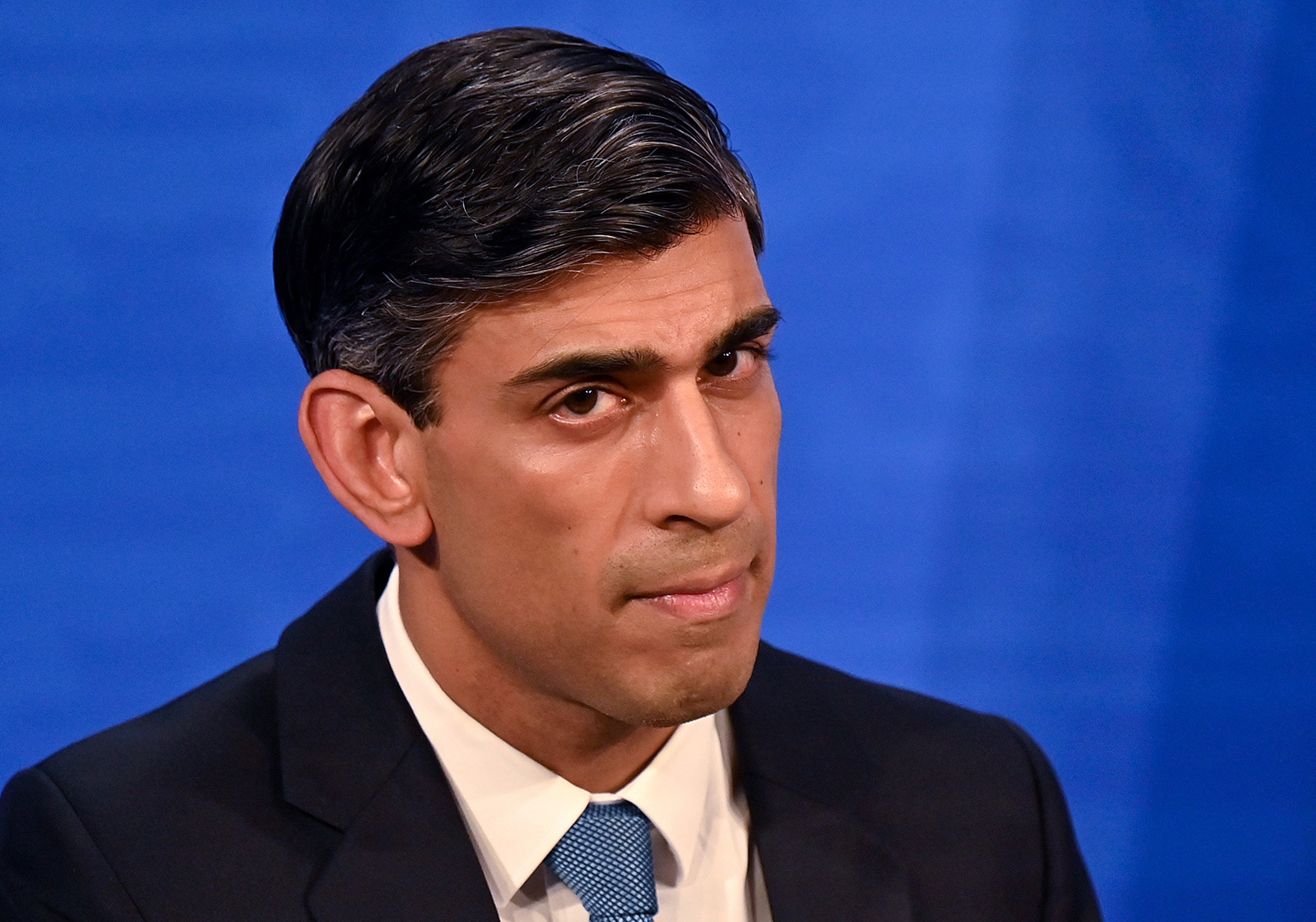How much money is Sunak really going to recover with his Covid fraud ‘task force’?
The chancellor has declared he will be leading efforts to recover £5bn stolen from Covid support schemes but, asks Chris Blackhurst, isn’t this just more boosterism?


Rishi Sunak announced the Treasury is to spend £25m on recovering money stolen from state-backed Covid support schemes.
The usual boosterism is called upon. This isn’t to be a normal body, but a “task force”, which begs the question: at one time just how many task forces are there across this government? They’re not data analysts that will be hired, but data analytic “experts”. Of course they are.
Says Sunak: “People are rightly furious that fraudsters took advantage of our vital Covid support schemes, and we are acting to make sure they pay the price.” You have to wonder, does the chancellor, on paper at least an intelligent man, well versed in business and finance, having done stints at Goldman Sachs and in hedge funds, really believe this guff? Does he genuinely suppose he and his colleagues are “acting to make sure they pay the price”?
Sadly, there are plenty of folk who will voice their approval, they will believe that £25m is not to be sniffed at and shows the right level of seriousness. Then you consider that up to £5bn is estimated to have been lost to fraud in the state-backed bounce back loan scheme alone – the one that guaranteed bank loans of up to £50,000 for small businesses struggling to stay afloat in the first lockdown. On top of that, there was £5.5bn of taxpayer money nabbed by fraudsters or given out incorrectly under the government’s furlough plan, self-employed support and “eat out to help out” arrangements.
Suddenly, £25m appears neither here nor there and that sound you hear is not applause but the crooks chortling at the exercising of an all-too typical combination of hype and incompetence.
According to Sunak, this crack squad will be operational by the summer. So, if they’ve not done so already, the criminals can salt away their ill-gotten gains in the coming weeks and months, they’ve got plenty of time to take their pick of any one of the tax havens that specialise in aiding the hiding of loot, many of which, ironically and unjustifiably, are fostered and protected by Britain.
Think about it for a second. Just how many of these white collar special forces will be recruited, assuming they are available? And what are their likely case loads going to be? Whatever the figure it’s not enough. Sunak can’t help over-egging it, so they’re also going to be charged with spotting suspicious companies and people seeking government contracts, and they will be given authority to carry out mandatory inspections of Whitehall programmes to uncover vulnerability to fraud.
The UK’s former counter-fraud minister, Lord Agnew, indicated the scale of the task when he castigated Sir Tom Scholar, permanent secretary at the Treasury, for writing a letter to MPs, “boasting” about 49 arrests of fraudsters. Agnew said the number of potential criminals could be as high as 100,000.
The government could put pressure on the banks to pursue the crooks, to go after them the same as they would any of their customers suspected of behaving improperly
“This is the was they deal with it, they’ll take some trivial little intervention, and list it as a major effort in dealing with the problem,” he told the House of Commons Treasury select committee. He said that Scholar’s letter “embodies everything about the complacency that grips the civil service”.
Agnew is right: we’ve got the little intervention, £25m, and Sunak is hailing it as a major effort in dealing with the problem.
Banks made minimal checks in order to quicken the lending. This was a green light to fraudsters who could not believe their luck – they invented companies, inflated revenues and made multiple applications to different banks. The scheme was overseen by the British Business Bank or BBB. So far, says the BBB, banks have submitted £1.9bn of claims to the government. Agnew has predicted this figure will rise further as the government faces an “avalanche” of claims.
There is a clue here as to what should occur, what could make a difference, as opposed to Sunak’s Swat unit. The government could put pressure on the banks to pursue the crooks, to go after them the same as they would any of their customers suspected of behaving improperly. The weakness is that as the government, working with the BBB, stepped in to act as guarantor there is little incentive for the banks to do so – they’re going to get their funds back and that is all that concerns them.
The banks have far greater investigative resources at their disposal than Sunak’s paltry £25m. A threat from the government to target a slice of their profits to pay for the rampant criminality aided by their lackadaisical approach might sharpen minds and galvanise them into action. At present, the banks continue paying large dividends and bonuses, the criminals enjoy the fruits of their scams, and the public purse loses out. The banks could do with a lesson in accepting their share of responsibility.
Sadly, Sunak is right to trumpet one aspect of the new force. It will double the government’s existing central capacity to combat fraud. Yes, that’s just how seriously the government took fraud, until now.
Doubtless when he chairs the first meeting of the government’s new efficiencies and value for money committee next week, Sunak will present an outlay of £25m to chase and hopefully secure billions as good business. How much of that cash is actually recovered, however, is a different matter.






Join our commenting forum
Join thought-provoking conversations, follow other Independent readers and see their replies
Comments